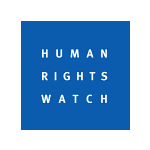Dispatches: In Kosovo, Justice Welcome But Incomplete
 In war crimes investigations, it is unusual to get a name. Victims and witnesses usually cannot distinguish between various forces – police, special police, special forces – let alone a unit. An individual’s identity is the rarest of all.
In war crimes investigations, it is unusual to get a name. Victims and witnesses usually cannot distinguish between various forces – police, special police, special forces – let alone a unit. An individual’s identity is the rarest of all.
So, it came as a surprise to find a series of photos in Kosovo just after the war in 1999 that showed Serbian paramilitaries up close: men toting guns and posing before a burning building. Even more, Kosovo Albanians in the area knew some of the men by name. They were from there, former neighbors in the ethnically mixed area around Pec (Peja in Albanian).
The crimes around Pec were gruesome. On one day during the NATO bombing of Yugoslavia, May 14, 1999, a Serbian paramilitary group executed 41 Albanian men in Cuska (Qyshk), 19 in Zahac (Zahaq) and 10 in Pavljan (Pavlan). Three survivors said they were lined up to get shot but somehow escaped the bullets, hiding under the bodies of their relatives and friends.
After careful cross-checking, our report, A Village Destroyed, named three of the men. It put them in the area on the day of those crimes. We didn’t know if they had pulled triggers, but multiple witnesses placed them at the scenes.
Fifteen years later, a Serbian war crimes court in Belgrade delivered its verdict. Nine members of the unit, identified as “The Jackals,” were convicted last week and got sentences of between two and 20 years in prison. Among them are two of the men identified in our report (the third died in 2005 in Argentina).
It is deeply gratifying to see justice served, even after 15 years. It is also important that these convictions came from a Serbian institution. That will make them resonate more deeply in the region and strengthen the intended effect: to deter future crimes.
But the nine convicted paramilitaries are small fish. They were foot soldiers in a well-coordinated campaign across Kosovo to kill and forcibly expel ethnic Albanians. Cuska is one on a long list of villages that Serbian forces violently changed.
Then-Yugoslav President Slobodon Milosevic and five top leaders faced trials for crimes committed in Kosovo at the UN war crimes tribunal in The Hague (four were convicted, and Milosevic died during the trial). But what of the police and army commanders who ran the show in Pec and other places? Prosecutors and courts in Serbia and elsewhere in the region should focus beyond those at the very bottom and top of the chain.







